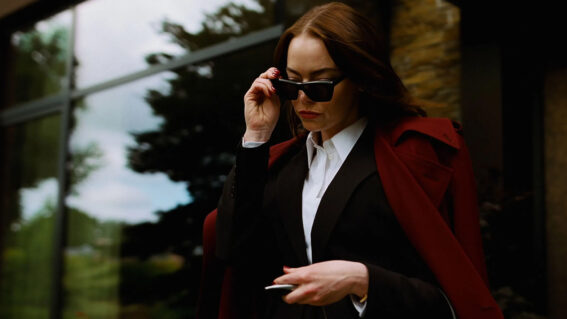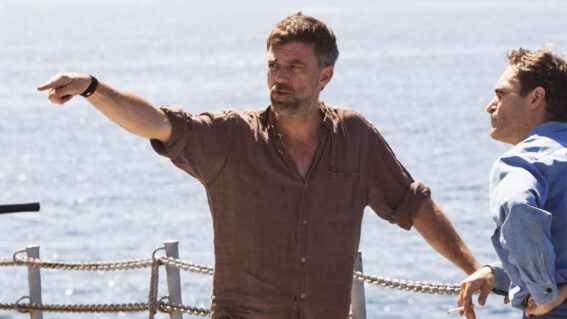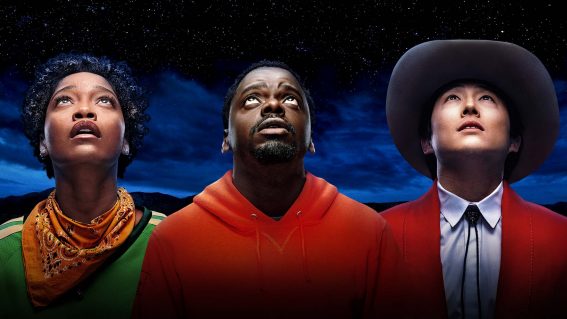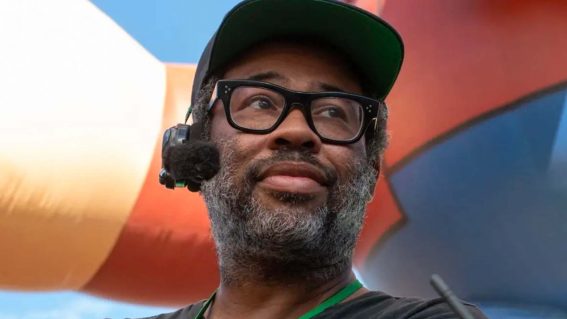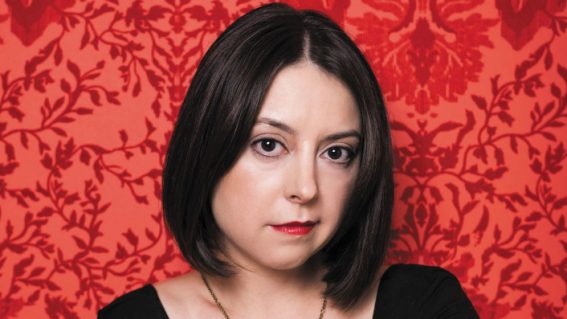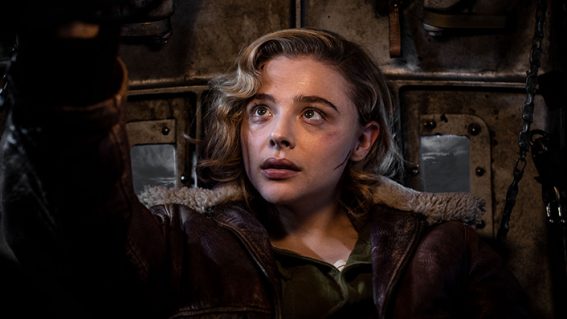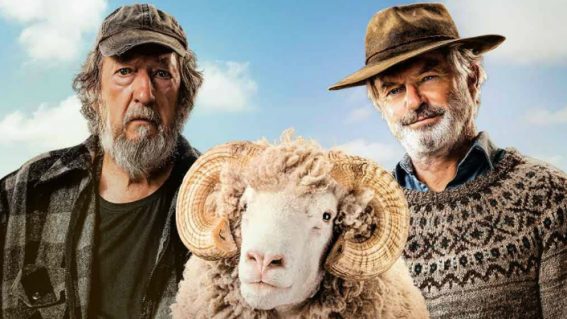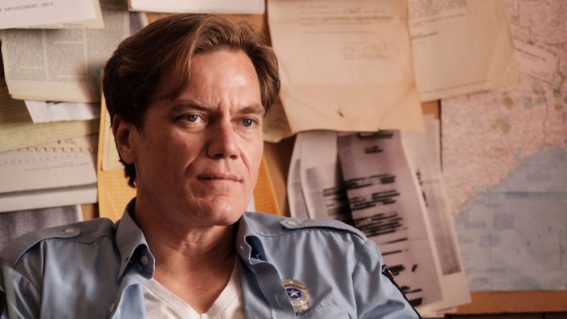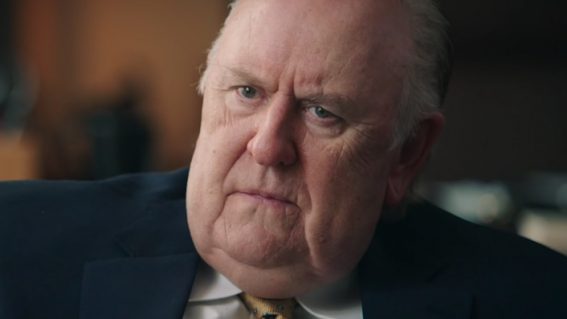“Really, really, really lucky to work with a New Zealander” – Leave No Trace director
“Thom, as a young woman, is absolutely, I would say, by nature a curious person. A receptive person. She’s not jaded.”
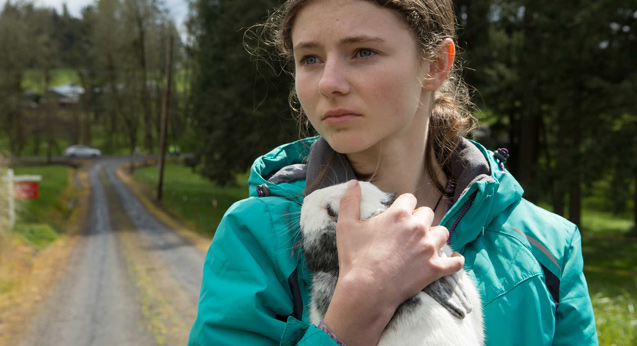
Leave No Trace director Debra Granik was in Aotearoa recently for NZ International Film Festival screenings of her spellbinding new film. We gave it a 5-star review, and it took 5th place in our reviewers’ poll of the best of NZIFF. Granik spoke with Flicks about her film, retreating from society, and the amazing lead performance by young Kiwi Thomasin Harcourt McKenzie.
FLICKS: The film had me thinking about how many narratives there are about running away. New Zealand’s got our versions of it. The expression “going bush”. And it’s romantic and it’s attractive. But obviously, in your story, it’s not really so much the allure of the environment. It’s a push away from society rather than a pull to that.
Do you feel that the film pushes against some of those romantic notions?
DEBRA GRANIK: I think so, because as you say they’re trying to pull out from something. So it’s not just a lifestyle change, or an expedition dare. It’s not like saying, “Let me climb a mountain.” Get some expensive gear and do this because it’s a personal challenge. And I’m not trying to diss those things. And there’s films about people that try feats. An ascent to a tall mountain, or hiking a very large amount of trail. Or even introspective journeys, right, where someone’s had to seek out a challenging lifestyle because there’s some issues they’re working out. And to some extent, that’s what’s happening here.
This individual who is traveling in this part of his life with his daughter is feeling alienated from the business as usual of a mid-sized American metropolis, or a city, or town. And he’s saying, “Okay. The way that I calibrate, the way that I can make my life work, the way that I know how to operate well and be a good teacher to my daughter is to live a very reduced and simplified lifestyle where I know how to operate because the amount of elements I’m trying to sort through are delimited.”
He’s also wanting very much to go against some of the pressures of consumer capitalism. He would like to live with less objects with less material weight. So in some ways, he’s trying to be undetected. He’s trying to find a niche where you could live maybe more in accordance to your own thoughts of what would make sense for your lifestyle. But if you’re not a person with property, you don’t really get to choose that, right? Someone who would like to live an alternative lifestyle who owns a little parcel of land can go do so. They can set up some solar panels. Their needs for energy and shelter can be satisfied, and they’re not going to be booted off their own parcel. But he’s in a different predicament.
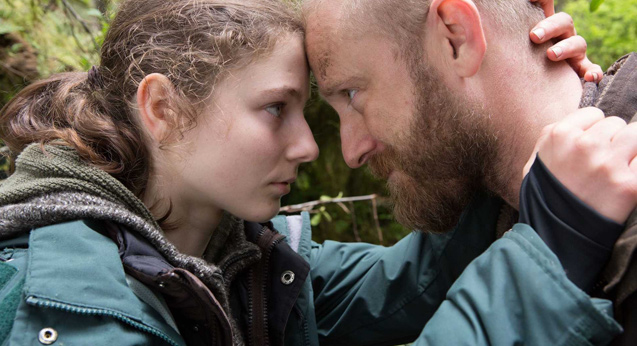
Ben Foster’s character has put his daughter in a specific situation, but this is a story of her finding how she fits in. That’s another thing that goes against, I guess, some of those more romantic versions of running away from things.
He’s showing her one way, which it to extricate and to simplify, and then she has to go on her own journey of curiosity, which is really what we call coming-of-age, right? To be curious about what are the choices on this planet. How do people choose their method of existence and their survival techniques? So she’s been shown one set from him, and then, of course, like a positive Pandora, she’s going to be opening these boxes and looking in like, “I see that. Oh, I see that. Oh, I’m noting this here.” And then she’s got to adjudicate and feel her way through, “what draws me?” So you’re absolutely right that she has to then go through this kind of seeking phase of, “how am I going to put my life together?”
That performance conveys so much of the emotional narrative of her character. There’s so much conveyed through nuance. And she’s able to depict a really strong emotional life by not doing very much.
How do you direct for that? Did you see that latent in her as an actor, and then how do you direct that to get that result on screen?
So Thom, as a young woman, is absolutely, I would say, by nature a curious person. A receptive person. She’s not jaded. She’s not like, “Been there. Seen it.” Or, only in her device. She’s always looking. Always making observations in her real day-to-day life. And she brought that to the character. So she’s not someone who just has her head buried in one part of human life right now called social media or whatnot, so I didn’t have to somehow come up with big tropes to dig that out of her. She comes with that. And so I think it’s very visible on-screen.
Then I think the fact that she was in a different environment, as a Kiwi trying to do this entire imagining in Oregon. Like you say, there’s some resemblance. The forest can visibly look a little bit like there’s some kinships here with the emerald green, and the moss, and whatnot and the sword ferns. Be that as it may, she had to listen to different accents, and different dialects, and different idiomatic things, and idiosyncratic things. And so she had to stay attuned. I think that also helped.
I think the fact that she was a foreigner made the Thom-ness of it, who’s feeling like a foreigner sometimes in these new environments, right? She doesn’t have it all wrapped up. She doesn’t know everything that the other teens that she meets know. And so maybe those two things really facilitated her being able to take a really fresh take on her journey and then you feel that on screen.
There’s a lot of time where it’s just her on screen. When you’re working with basically your actor’s emotional responses to what’s happening around them, so it’s not dialogue driven, and it’s not even necessarily very action-orientated.
Do you find that in edit, or do you know what you need from each specific scene in terms of exactly what that mini emotional arc of the scene looks like?
It’s both. Some of it you may not know if you’re going to use it or not, but you might say, “Oh, look back. Just look back. Just take a glance behind you.” And sometimes that one little look back, you realize, “Oh. It was hard for her to leave. She looked back,” or whatever. So it’s a mixture.
What I’m trying to say is it’s a mixture of knowing at the time that it would be good to get something, and then in editing maybe it’s inadvertent that it’s just a pause in the filming, and you see a moment where Thom is looking down, or she’s stealing a look at someone, and it just was a moment that was kind of interested chill. That you weren’t directing, but it happened. And then the edit you’d say, “Oh my God. Let’s just use that. That’s great. She just stole a look over there, and you realize that she’s actually concerned.” So it’s absolutely a mixture.
I think only the likes of someone like Hitchcock or Kubrick could ever really say, “Okay. That was on a shot list. Every single thing that you see in my film was premeditated.”
Where their actors are marionettes being maneuvered through?
Yeah. And so in edit you find a lot of ways to fix something or enhance it that you didn’t know at the time. And similarly, at the time you try your damnedest to get some things that you realise are quiet moments that could help convey a moment that the person’s experiencing, the character on screen’s experiencing, or that it would give you the viewer a moment to just have your own thoughts circulate and register them.
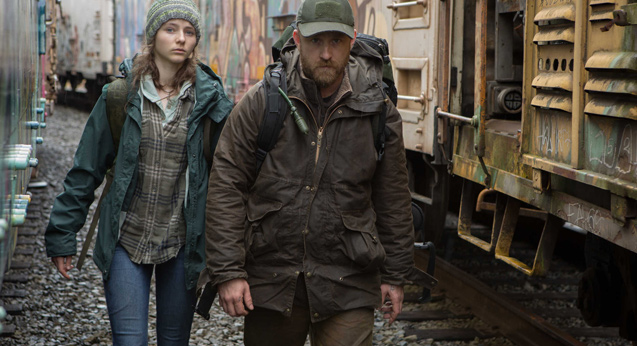
Do you have an affinity for people that are making a choice not to participate in mainstream society? There are communities we see depicted during the film that are warm, and welcoming. So I wondered if you had a sort of personal affinity for some of those lifestyles or attitudes?
I do. I really do. It takes a lot to go against the grain. It takes a lot to get in touch with what you might really want or value I feel for most people. There’s a lot of dangling distractions. Not sirens, but the equivalent of sirens.
A lot of things that we’re told could guarantee our happiness or could really facilitate it in terms of something new, something better, something bigger. A bigger dwelling. The next edition of X, Y, or Z. The next model of something. A phone that was smarter than the last one. And so to figure out what it is that you might really relish or might really give a foundation to some of your day-to-day for many of us takes a lifetime to know what that is, or lots of your life. So when people identify some of those things, I’m really interested. When they make a discretion, when they make a choice, or even when it’s just dictated by survival, I’m interested in that too. Scrappy survivors, on a project prior to this one, brought me into contact with a community that inspired the community that’s depicted in Leave No Trace. It was an RV community where I filmed a documentary with a character named Stray Dog. A lot of what you see on-screen in Leave No Trace is very inspired directly – very directly – from some tableaus that I witnessed in his RV park.
A final question before we wrap-up: as a filmmaker for you personally, is it interesting to travel halfway around the world to showcase an actor from the place that you’re taking your film to? From media appearances, to just how an audience responds to “that’s a New Zealander on the screen”?
Oh, totally. Very, very. As cheesy and corny as it is, I’ve been repeating this last 48 or 72 hours, cultural exchanges really work. They just really do. It was so refreshing and novel for the crew. They really responded to Thom. And there’s another filmmaker colleague that came with Thom to be of assistance to her – not her assistant, but a collegial relationship – where Thom could have just some really grounded support by an older mentor. A woman named Claire Van Beek. She’s an Aucklander. And she was present. And the crew was so happy to meet them. It was just like this new element. And not just the novelty. Many of us are attracted to someone who speaks differently than we do. Has their own accent. It perks up the ears, right?
You’re hearing your mother tongue pronounced very differently and that’s just got a novelty to it that never gets old really. It was really positive. I was just delighted that all these Oregonians were so happy to meet Claire and Thom. It’s powerful to meet people that have not shared the same home country [laughter].
I don’t want to make too much out of it. I’m just saying it was a positive thing. It was a positive infusion. And I do think that, as I said, that the fact that Thom was an outsider to where she was filming brought this beautiful quality of distillation and a nonjaded approach. Really, really, really lucky to work with a New Zealander.






